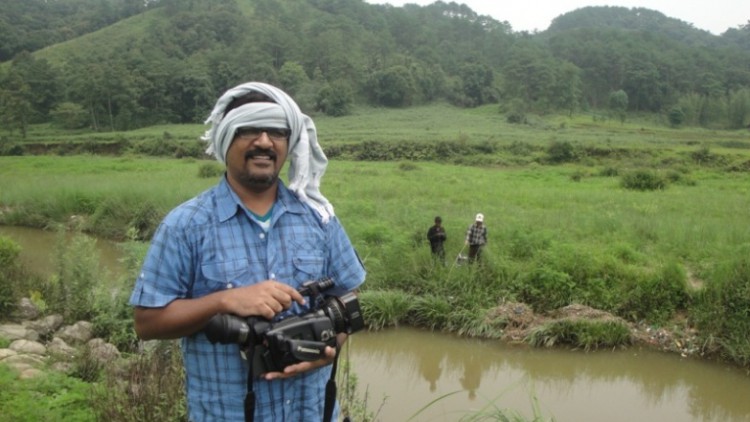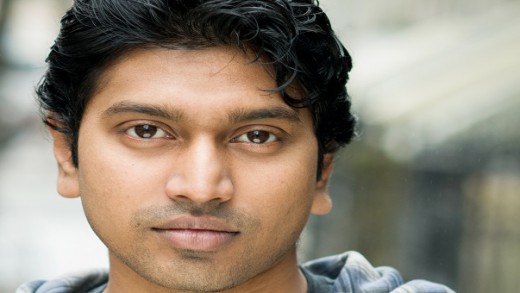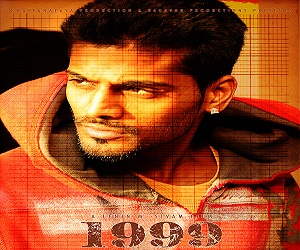This article is dedicated to the memories of Balu Mahendra (1939 – 2014) and K.S. Balachandran (1944 – 2014), two Tamil filmmakers of Sri Lankan origin both of whom passed away last month. Their lengthy contribution to Tamil cinema, and theatre in the case of Balachandran, is undeniable and unforgettable.
The town of Kodambakkam in Chennai, Tamil Nadu is synonymous with Kollywood, the global capital of the Tamil film industry. Spanning a history of almost 100 years of films, it is one of the largest industries of its kind in the world and dominates the sector in South India. Kollywood’s glitzy stars exert tremendous influence in the state, from arts to politics to business. Some of these stars have also gone on to gain national and international fame such as filmmaker Mani Ratnam, musicians Ilaiyaraaja and A.R. Rahman, actors Rajinikanth and Kamal Hassan, actresses Sridevi, and choreographer Prabhu Deva.
In a city so dominated by Kollywood’s commercial cinema fare, it is not often that alternative cinema is celebrated. Nevertheless, on February 5 – 7, 2014, the Second Annual Chennai International Documentary and Short Film Festival (CIDSFF) was held at Madras University*. Featuring 34 films from across India and around the world, the festival showcased an eclectic selection of films that focused on a wide range of issues including the anti-nuclear movement in South India, abandoned indigenous children in Peru, outbreaks of communal violence in Delhi and Mumbai, increasing rates of suicide amongst farmers in Punjab, and whether or not “good” Indian girls should dance!
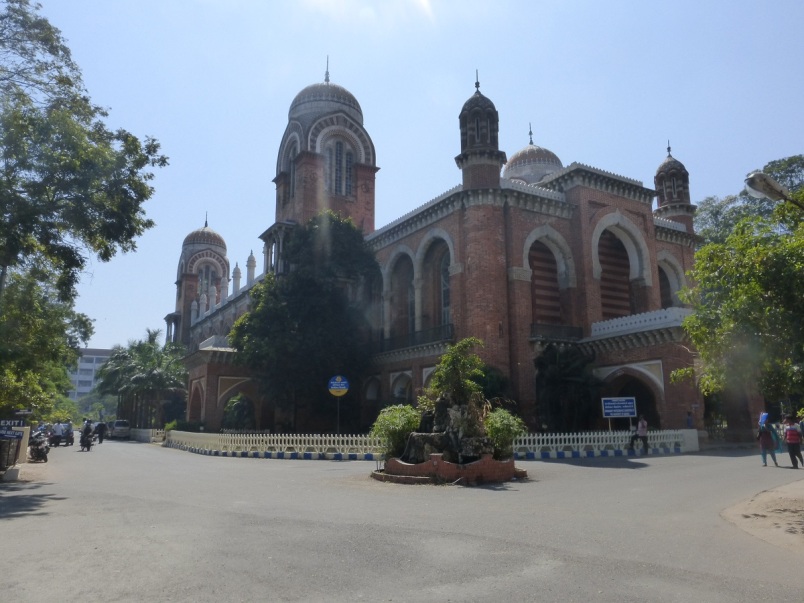
TamilCulture sat down for an exclusive interview with Amudhan R.P., noted documentary filmmaker, media activist and curator of the Madurai and Chennai International Documentary and Short Film Festivals to learn more about him, documentary filmmaking in Tamil Nadu, and the festival itself.
TC: Amudhan, thank you for agreeing to speak with us. Can you please start by telling us about yourself and why you decided to become a documentary filmmaker?
Amudhan R.P.: I moved to Chennai a few years ago but I am originally from Madurai where I did all my schooling. My father was a member of the Communist Party of India. He used to read and write a lot, go to rallies, and there would always be meetings at our house. So, I was raised in this kind of political atmosphere at home where I was taught to take people’s side, lead a simple life, and work for the betterment of society. That was my upbringing. Madurai is also a place where Tamil cinema has historically had a strong presence. So Tamil cinema and politics have always been a parallel in my life and I turned towards a genre that could be merged to create sensitive, responsible cinema. The turning point in my life came when I was in graduate school and had the opportunity to take part in a documentary filmmaking workshop where I watched films by Anand Patwardhan, Patricio Guzmán and Dennis O’Rourke. I was really impressed by their work – it was so honest, simple, and direct and as filmmakers they had complete control of the medium without needing to have the support of an industry or big money. So the combination of my grounding in communist politics and the influence of Tamil cinema clicked for me in the form of documentary filmmaking.
TC: What kind of challenges did you have to overcome when you opted to become a documentary filmmaker?
Amudhan R.P.: I think some challenges that I faced when I first started out are challenges that I still face today. You need to think about what kind of film you want to make, how you develop a political understanding of an issue. The film cannot be about nothing. If you are making a film for a cause and documentary films serve that purpose I think, you have to decide what kind of film you want to make and what your position is. For example, if you want to make a political documentary, you need to make decisions about how it can be made, who the audience will be, where it can be screened, etc. Since I come from an activist background, I have worked with a lot of activists in Tamil Nadu. For example, I have been involved in the Koodankulam anti-nuclear movement since 1988. So being a part of that culture, I was lucky in that sense I did not have any problems finding stories, creating films out of them, finding audiences who wanted to watch them, and using the films to not preach or teach but provoke discussions amongst these audiences.
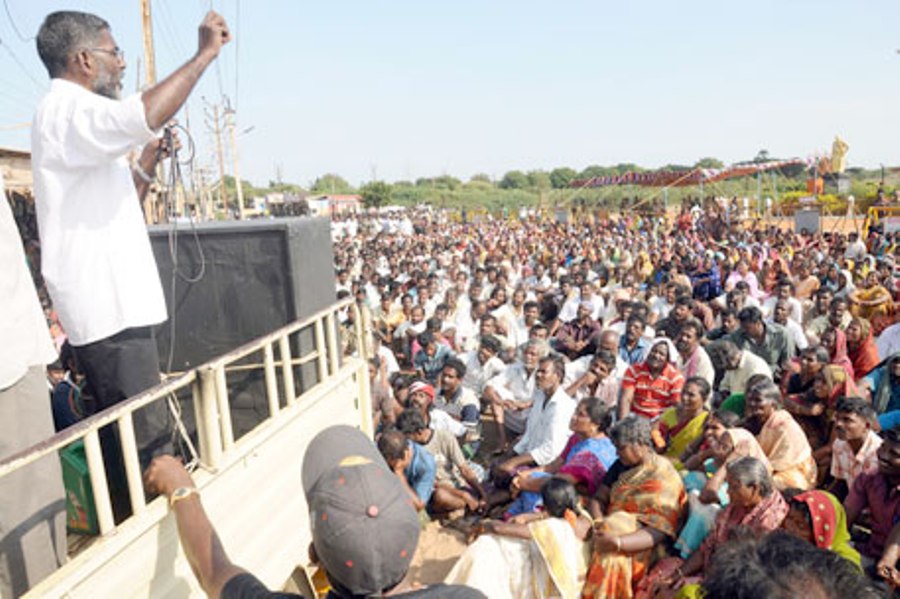
Other than that, the other challenge is economical I suppose. Documentary filmmaking is not a moneymaking business. Fortunately, I come from a middle class background and my parents have always been supportive so I could manage okay without necessarily earning much money. What documentary filmmaking has done instead is that it has given me the opportunity to travel, meet lots of people, and do interesting work. I remember when I first started in the mid-1990s, there was virtually no money in documentary filmmaking and technology was very expensive. But over the past 10 years, the availability of computers and editing software, better cameras, and the use of digital video have made things easier. There is also a little bit more money in this business so things are definitely better now than when I first started out.
TC: What are the major social issues you have covered in your films? For example, in an introduction to one of the films, you mentioned that you empathize with dalits but do not necessarily want to assume the role of sympathizer or protector. What did you mean?
Amudhan R.P.: In the mid-to-late 1990s, there was an important dalit uprising in Tamil Nadu. Dalits started organizing themselves and began to retaliate against acts of violence carried out on them by upper caste communities, even sometimes resorting to violence themselves. It was a time when dalit arts, literature, theatre, painting and really all kinds of art forms gathered momentum. If you were an activist or sensitive filmmaker during that time, you were influenced by that uprising even if you were not a dalit yourself. This is what happened to me as well especially given the orientation I also already had because of my father who was working with dalits even as far back as the 1950s. So I started making films about dalits with dalits and it evolved into an interest in human rights which has become the theme of my films. For example, I made a trilogy of films on dalit experiences of caste including Shit, Seruppu (slippers), and Notes from a Crematorium. Then there is the trilogy I made on the anti-nuclear movement called Radiation Stories. The film on Koodankulamthat you saw today is the third film in that trilogy.
TC: Do you think commercial Tamil cinema of the Kollywood kind is looking at such social issues more closely now than it has done before?
Amudhan R.P.: There is no doubt that Tamil cinema is going through an interesting phase right now. Commercial cinema is filmmaking by popular, democratic politics and you cannot afford to take a hard stance on an issue since you negotiate with many kinds of people you need to include even at the cost of sacrificing efficiency. Filmmakers need to deal with the reality of the market which is geared towards profit making and you cannot say no to money because it is an expensive business to be in. So popular cinema has its own limitations because it is popular and cannot afford to be very serious so you cannot take a sharp stance on any issue. The market also controls what is represented and only majoritarian views are represented. For example, Tamil cinema has always been anti-women, anti-dalits, anti-Muslims, pro-capitalism, pro-men, and pro-upper caste men – even upper caste women are insulted in films. This is an inherent characteristic of Tamil cinema so whatever change happens, it still happens within the commercial cinema structure and is suppressed and repressed by different interests. Even some of the films, for example, that have come out recently that tries to break out of this structure are still very much male perspectives. But despite these things, interesting films are starting to come out.
TC: Why did you decide to become a curator of documentary film festivals first in Madurai and now in Chennai?
Amudhan R.P.: See, I was never just a filmmaker. I have been a media activist from day one whether it was screening films, training filmmakers or organizing film festivals. For me, curating a film festival is just as important as making a film. You see so many films and you have to make decisions on what kind of films you want to program and you actively negotiate with yourself and others to create a complete package which is what making a film is about as well. Films are also not a personal medium. It is not like a reading a book where you often contemplate by yourself. For me, film is a public medium. It has to be seen with people. It is a public spectacle – people sit next each other and watch it, you are influenced by other people, and you can discuss it as a group right after, especially documentaries. Also, when I first started making films in 1997 there were hardly any film festivals in India. There are still not many regular film festivals in India. So I started the Madurai International Documentary and Short Film Festival in 1998 as a one-off festival because we wanted to protest India’s testing of nuclear missiles in Pokhran which caused relations between India and Pakistan to deteriorate, encouraged by religious fundamentalists in both countries. We did not consider the nuclear testing as a scientific development but an act of violence so we protested it in the form of a festival which got tremendous response from people so we decided to continue the festival every year. The Madurai festival has now crossed the 15-year mark and is now the biggest and longest-running festival in India outside of what is organized, funded or sponsored by the government such as the Mumbai International Film Festival.
TC: Now that the festival has successfully concluded after three great days of films, what has been your favourite part of this year’s festival?
Amudhan R.P.: I was really happy to see the amount of interest in this year’s festival amongst students here in Madras University whom I found to be very receptive to such films. I think the spirit of the festival was also different. I like doing things at a small scale – I do not believe in doing things at a grand level. The moment you start bringing in money, the character of a festival changes. As long as it is a poor festival, the spirit of the festival remains unchanged. The budget for this year, for example, was just INR Rs. 1,000 which we spent on posters and brochures. So I am really happy about these two things this year.
TC: What is next for you and the festival?
Amudhan R.P.: Well, I am really happy we now have a regular space at Madras University for this festival. Educational institutions are good sites for such festivals – there is access to equipment, technology, and also helps safeguard freedom of expression especially when it comes to films that deal with politically controversial subjects. The students also expressed interest in seeing more of such films so I want to work with them and students at other colleges in Madras to have more screenings and discussions in the future.
As for myself, I am working on the script for my next film which will be a feature film because I want to test that form as well. It is on male sexuality and will probably take a couple of years to complete. In the meantime, I will be shooting another documentary in Tirupur, specifically its political economy which is driven by the massive garment industry that produces clothing for international labels. So I want to make a film on that industry, how it was created, how different interests perceive it, and what the impact is on local communities and the environment.
TamilCulture’s CIDSFF 2014 Shortlist:
- Radiation Stories – Part III: Koodankulam: The anti-nuclear movement against the Koodankulam nuclear plant in Tirunelveli, Tamil Nadu is an ongoing story of a people’s movement that began more than 20 years ago. However, in the aftermath of Fukushima Daiichi nuclear disaster in 2011, the movement gained momentum in and around the villages of Koodankulam and Idinthakarai. So when government authorities did a test run at the plant, inland farmers, workers, small traders and lower to middle class employees, for the first time, joined the poor local fishing community in the struggle to halt operation of the plant.
- Casa Luz: An insight into the everyday life of orphan children from the indigenous communities of Peru. Their lives are stories of poverty, grief, loss and abandonment but in Casa Luz, they are finally able to imagine a new future.
- Good Girls Don’t Dance: Journalist and documentary filmmaker Padmalatha Ravi questions the notions that shape urban India’s reaction to sexual harassment, molestation and rape.
- Sorry to Interrupt: The Berlin Underground has just pulled out as a voice politely announces: “Dear ladies and gentlemen, excuse me for interrupting…“ Everybody is watching the homeless woman selling a well-known street newspaper. But what does she actually see? This is an experimental but hopeful film about Nicole Y, a recovering drug addict.
- Ball n Beautiful: Although the economy of India is on the rise, approximately 75% of its population lives below the poverty line. This is an unusual story of a few girls from Rani, a village in the Kamrup district of Assam who have formed a football team in this ironical cricket-crazy nation and patriarchal society, against many odds.
* Incidentally, Madras University has had a lengthy relationship with Sri Lanka. Some brief but interesting highlights include:
- The first graduate of Madras University in 1857 was C.W. Thamotharampillai of Jaffna. He went on to become an influential scholar who edited and published many classical works of Tamil poetry and grammar.
- Noted anthropologist and inaugural Chair of the Department of Anthropology at Madras University, M.D. Raghavanwas appointed an official ethnologist with the then Government of Ceylon and undertook several studies in the country including groundbreaking work on the indigenous veddhas of Sri Lanka.
- Renowned Tamil Studies scholar and Professor Emeritus at the University of Jaffna, K. Sivathamby also served as a Visiting Professor of Tamil at Madras University in 1998. In recognition of his service to Tamil language and literature, particularly poetry, the Government of Tamil Nadu awarded him the V. Kalyanasundara Mudaliar Award in 2000.
Like many others, navarasan is an unrepentant cinephile. He vividly recalls watching his first movie, K. Balachander’s “Punnagai Mannan”, when he was four years old in Jaffna. He has been an amateur film snob since then.

 Kumaran Nadesan
Kumaran Nadesan